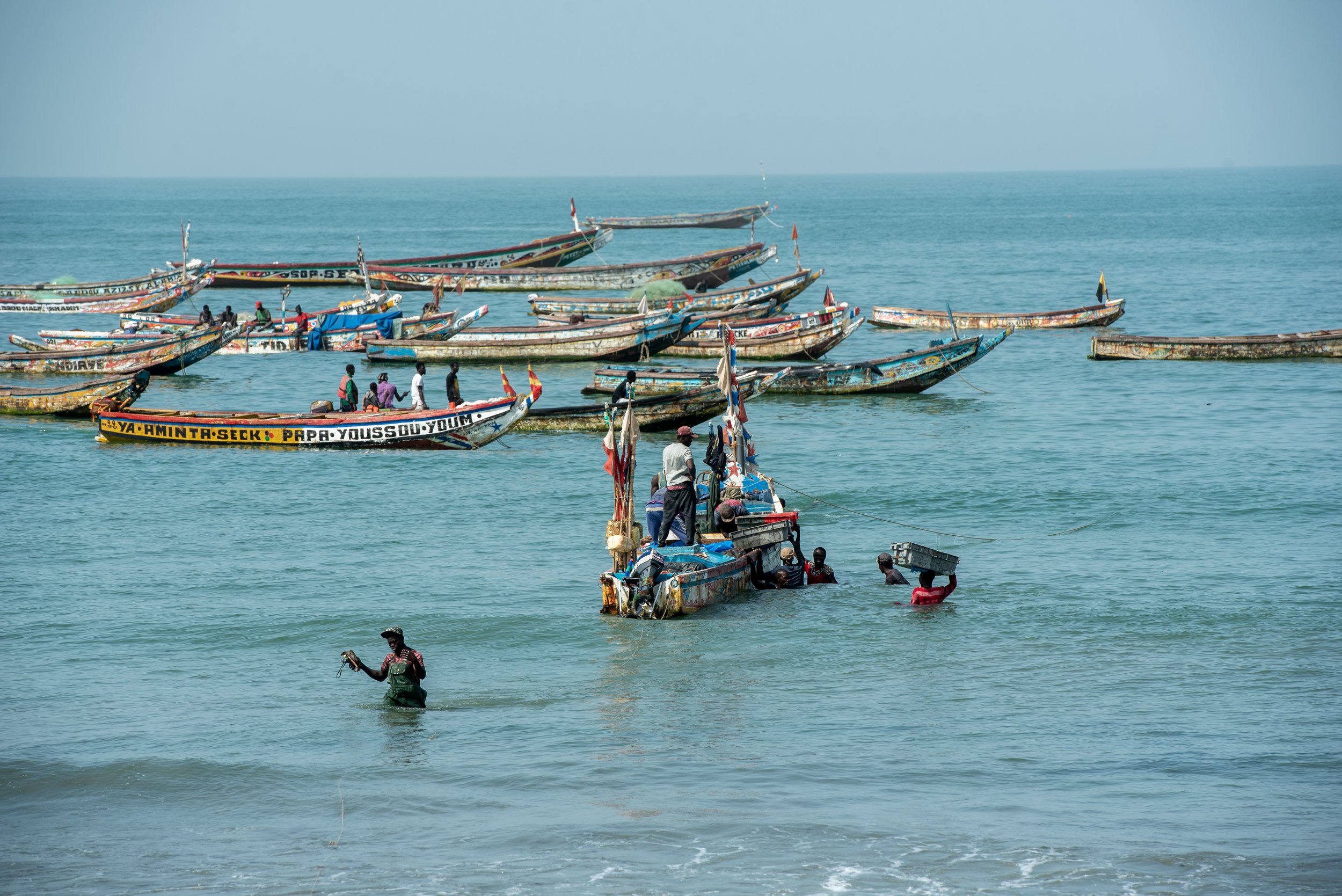FAO has recently published a report on the “Socio-economic and biological impacts of the fish-based feed industry for sub-Saharan Africa”.
The report analyses the production of fish-based feed (FBF) in nine countries, including Mauritania, Senegal and The Gambia, and draws broad recommendations calling for improved governance and evidence-based decision-making, especially by limiting the production “based on the status of fish stocks and the need for fish for human consumption”.
The report explains that the global demand for fishmeal and fishoil has increased due to the growth of the aquaculture sector, and livestock. However, most of the national production of countries like Congo, Mauritania, Senegal or the Gambia is exported mainly to China and Turkey. Because they cannot afford to buy the pricey manufactured feed, local fish and livestock farmers resort to local alternatives of low performance.
The proponents of the FBF industry highlight its socio-economic benefits through the direct employment created and the revenue, via taxes and licences, yet most of the times they employ “local workers in lower grades” and “qualified employees […] are generally foreigners”. Furthermore, the growth of such an industry might come to the loss of livelihoods in artisanal fishing dependent communities: “the industry’s social benefits remain limited” to a “few entities, and are accompanied by threats to livelihoods, employment, food security and nutrition, and the health and well-being of local communities.”
The report questions the fact that most of the fish used is “unfit for human consumption” and wonders whether it is being voluntarily redirected away from potential human consumption. They recommend better governance and “effective fish harvesting and post-harvesting practices to reduce bycatches and losses” which “may require an effective monitoring and surveillance system to ensure compliance with local, national and regional fisheries regulations.”
In West Africa, there is an increased pressure on small pelagic stocks, including the over-exploited sardinella, due to the expansion of the fishmeal and fishoil industry across the region. To get one kilo of fishmeal, more than 5 kgs of small pelagics are needed. The FAO report explains that recently the catches for human consumption have drastically decreased, “the industry has been competing with women processors” for access to fish and “fish has become extremely rare and expensive in local markets.”
Some artisanal fishermen sell their catches to the factories because they can obtain a better price. In the Senegal fishing town Kayar, an enquiry from the NGO natural Justice showed that a fishmeal factory is buying the basket of fish at 5000 FCFA, multiplying by five the price women fish processors paid before. According to locals, the installation of the fishmeal plants in Kayar has led to several hundred women artisanal fish processors losing their job. Food security is also affected: as the FAO report underscores, in 2020 in Senegal, the gap in fish demand was estimated at about 150,000 tonnes.
This industry is further endangering local populations, as the discharge of waste waters and smoke are causing respiratory problems and skin diseases.
Banner photo: Women fish processors in Kafountine, Casamance (Senegal), by Mediaprod for CFFA.












The Sustainable Fisheries Partnership Agreement (SFPA) between the EU and Mauritania is an opportunity to implement the “new generation” of agreements announced by the Commission, which should focus on the equitable sharing of benefits, local development, and the well-being of coastal communities that depend on fishing.